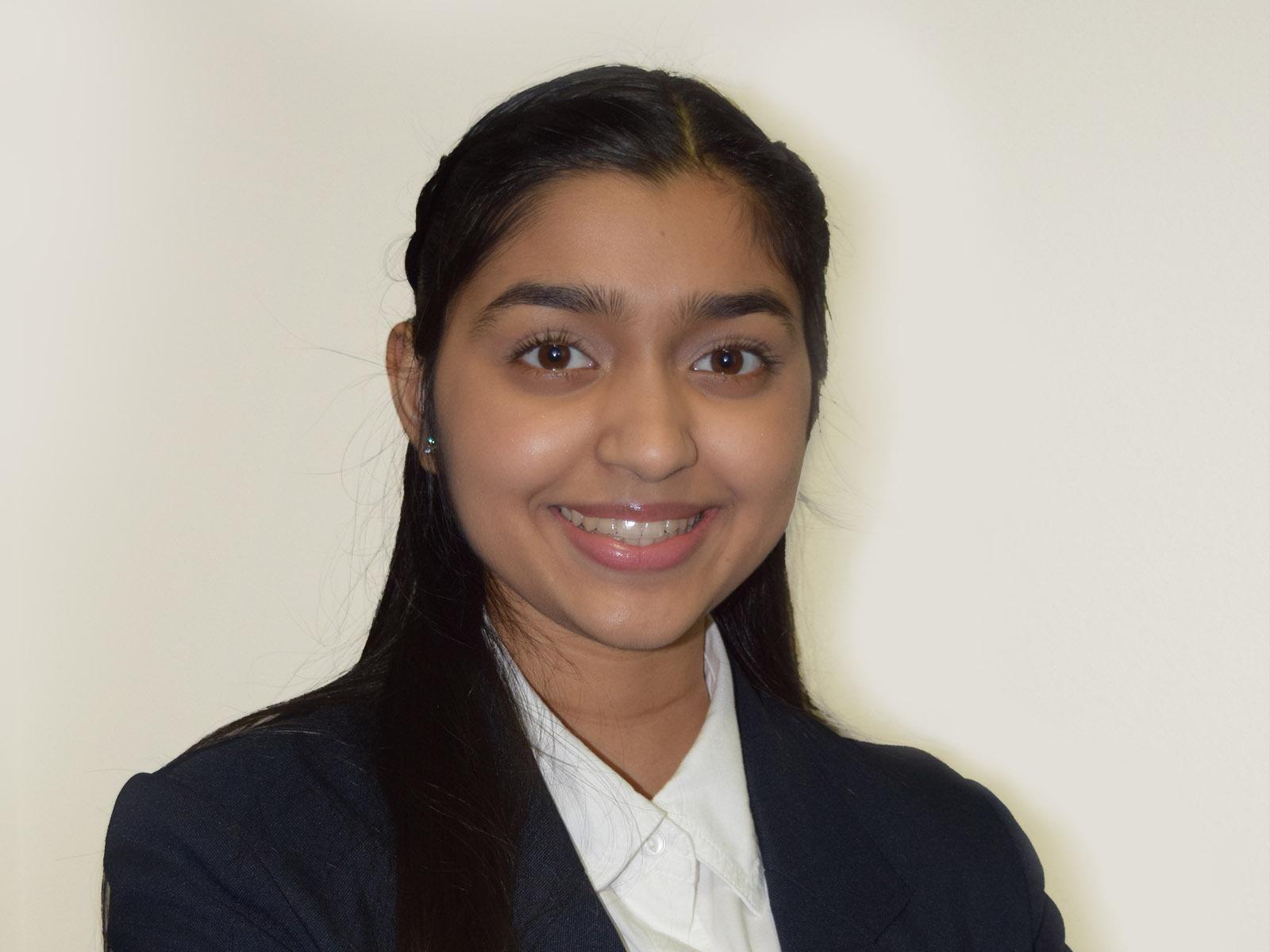Visual Analytics Intern Chosen as Delegate for American Junior Academy of Sciences
Honor recognizes high school student's COVID-19 misinformation research

Anika Halappanavar is a visual analytics intern at Pacific Northwest National Laboratory.
(Photo courtesy of Anika Halappanavar)
Anika Halappanavar, an intern at Pacific Northwest National Laboratory (PNNL), has been recognized as one of Washington State’s top high school researchers for her exceptional scientific study into COVID-19 misinformation.
The Richland High School junior was one of 15 Washington State high school students chosen as a delegate for the American Junior Academy of Sciences (AJAS). The AJAS is the only national honor society that recognizes high school students for outstanding scientific research.
As a member of the 2022 delegation, Halappanavar was invited to attend and present her research at the AJAS annual conference. The conference was held online in February, in conjunction with the American Association for the Advancement of Science annual meeting.
“Being an AJAS student fellow is an incredible honor,” Halappanavar said. “I am so thankful to my mentors.”
Anika’s analysis
Like any good scientist, Halappanavar began her research endeavors with a question: Could she create a misinformation detector?
The thought occurred to her while writing a paper on misinformation in her advanced placement seminar course in spring 2021. With her curiosity piqued, she decided to go beyond the class assignment to conduct a research project on the topic.
“I initially wanted to create a misinformation detector that could identify which articles were credible and which were not, but I realized misinformation was a very big problem and it’s really hard to classify whether something is fake or not,” Halappanavar said. “Instead, I decided to look into misinformation posted to social media during the COVID-19 pandemic—something that has been very relevant to our everyday lives.”
Halappanavar analyzed COVID-19-related social media content, specifically on Reddit, over a year-long period, looking for patterns in how people spread misinformation. She developed a graph analysis of her findings and made recommendations for combating misinformation, which included limiting the number of shares for a post to contain spread and using “speed-breaking” techniques, such as fact checks.
The project, titled, “Analysis of COVID-19 Misinformation: Origin and Cure Narratives,” took first place at the 2021 Washington State High School Science Fair. It also grabbed the attention of the Washington State Academy of Sciences, whose members nominated Halappanavar for the AJAS delegation. View Halappanavar’s video presentation on her project.
“My internship at PNNL has been an amazing opportunity.” - Anika Halappanavar
Learning from the experts
Luckily for Halappanavar, her dad, PNNL Computer Scientist Mahantesh Halappanavar, happened to work with two leading experts in social media analytics and misinformation: Svitlana Volkova and Maria Glenski. The two PNNL scientists informally advised Halappanavar on her COVID-19 misinformation analysis. The experience led to an internship alongside Volkova and Glenski in PNNL’s Data Science and Visual Analytics group within the Computing and Analytics Division.
“I was extremely impressed with Anika’s curiosity, determination, and level of commitment. She was able to quickly integrate into our team and learned so fast from many mentors,” Volkova said. “She is very capable technically and her thinking is very structured, which will help her to become an excellent scientist one day.”
During her internship, Halappanavar gained hands-on practice with artificial intelligence-based tools and natural language processing techniques for studying social media networks. In addition to Volkova and Glenski, Halappanavar’s team of mentors included data scientists Ellyn Ayton, Robin Cosbey, Ana Usenko, and Jasmine Eshun.
“My internship at PNNL has been an amazing opportunity for me to learn so many valuable skills and tools that I can use in college and as I pursue my own career as a data scientist,” Halappanavar said.
As for her misinformation detector, Halappanavar hasn’t given up yet. She is conducting another research project this spring that builds on her previous COVID-19 misinformation research and the newfound data analytics skills she learned during her PNNL internship.
“I’m planning to find a way to accurately detect if a post is fake or not,” she said.
Published: March 1, 2022